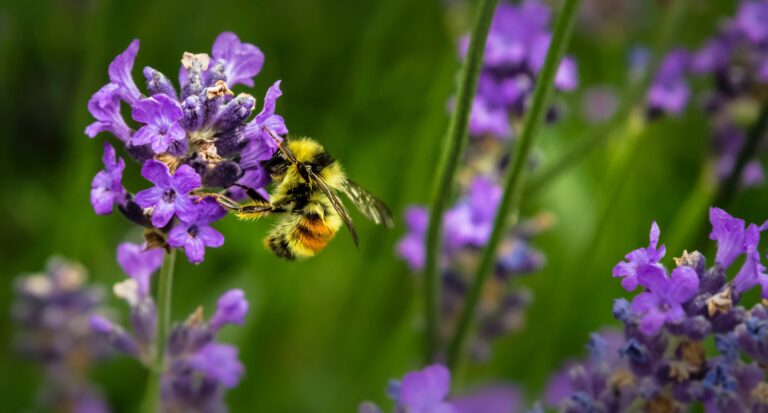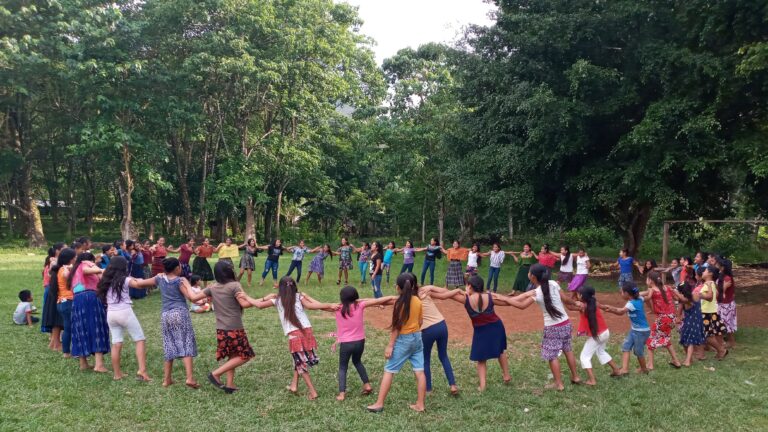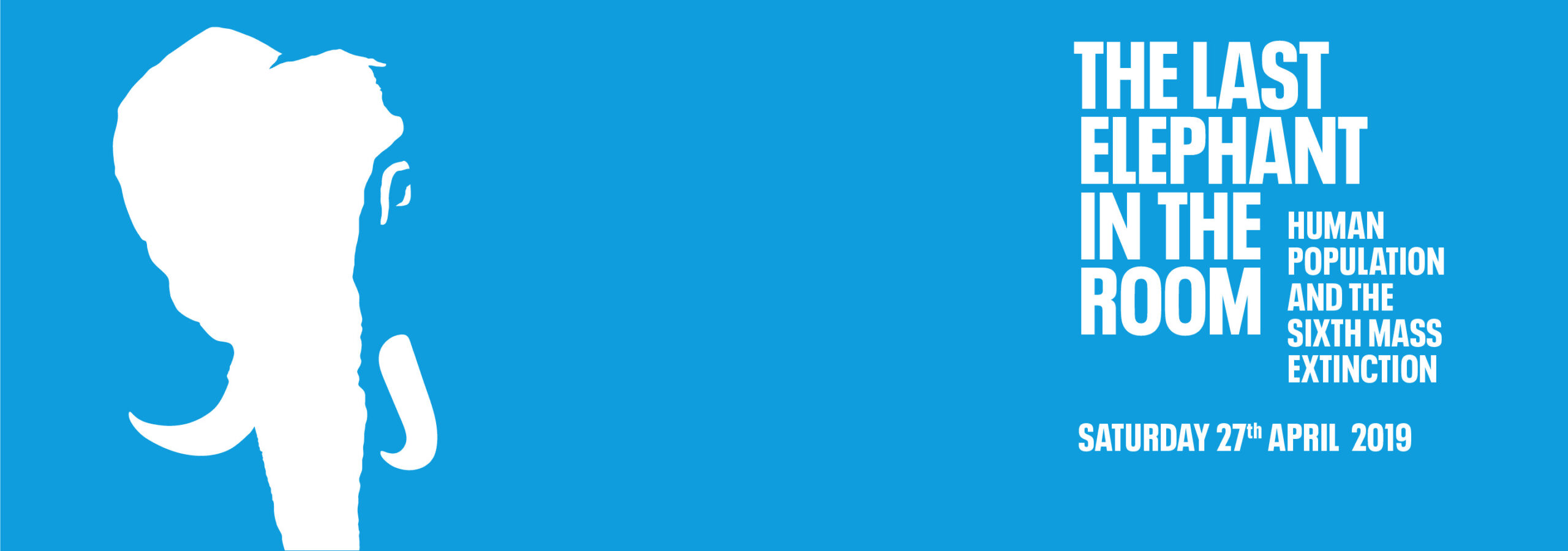
CONFERENCE 2019
Population Matters’ public conference in London on 27 April 2019 left attendees feeling enlightened and inspired. Following a successful first conference last year on human population and climate change, this year’s theme was the crucial link between population growth and biodiversity loss. With an incredibly knowledgeable international panel of speakers from diverse backgrounds, it was a fantastic event that highlighted the interconnectedness of environmental and social issues and the urgent need for the conservation community to address this.
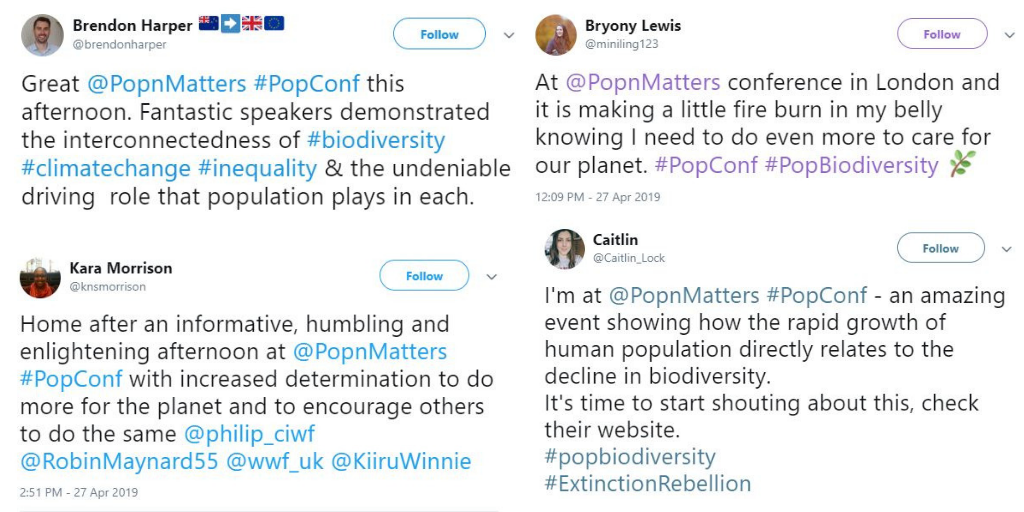
Population Matters conference 2019
Jane Goodall: ‘we can’t push population growth under the carpet’
Following an introduction by our President Jonathon Porritt in which he lamented the fact that too many environmental organisations still choose to ignore population, our audience was treated to a special video message from our Patron Dame Jane Goodall.
“I so badly wish that I could be with you in person because I think population is one of the most important issues that we face today.” … I would encourage every single conservation organisation, every single government organisation, to consider the absurdity of unlimited economic development on a planet with finite natural resources. We can’t go on like this. We can’t push human population growth under the carpet.”
Dame Jane Goodall
Dame Jane pointed out the importance of women’s empowerment in conservation and talked about some of the Jane Goodall Institute’s vital work in this field in Gombe National Park, Tanzania.
Watch Jane’s full message below.
Jane Goodall’s message to Population Matters’ conference
Farming, elephants and educating girls
Philip Lymbery, CEO of Compassion in World Farming, kicked off the presentations by talking about the devastating impact of factory farming on wildlife. Philip pointed out that humanity’s environmental footprint is hugely exacerbated by our unsustainable numbers and food systems: for every one billion additional people, 10 billion more farm animals are reared and slaughtered every year.
Dr Edu Effiom, Director of Biodiversity at Nigeria’s Cross River State Forestry Commission, presented her fascinating research on how Nigeria’s rapid population expansion is increasing demand for bushmeat and endangering key mammal species, in particular primates, which provide critical ecosystem services such as seed dispersal. Edu emphasised the need to address both consumption and population in conservation efforts and the importance of educating girls to bring down high fertility rates in the Global South.
Next up we had Dr Mark Wright, Director of Science at WWF UK, whose presentation ‘Population Does Matter’ gave a refreshingly holistic overview of the extinction crisis. With WWF International’s Living Planet Report repeatedly shying away from the issue of human population pressure, it was great to see Mark speak about the need to address our numbers as well as our consumption habits. His authoritative and impassioned presentation highlighted the huge global inequality in our consumption of resources and climate change emissions, with people in wealthy countries having disproportionately large environmental footprints and a corresponding responsibility to take action.
“The ‘population’ community and the ’consumption’ community have got to work together.”
Dr Mark Wright, WWF UK
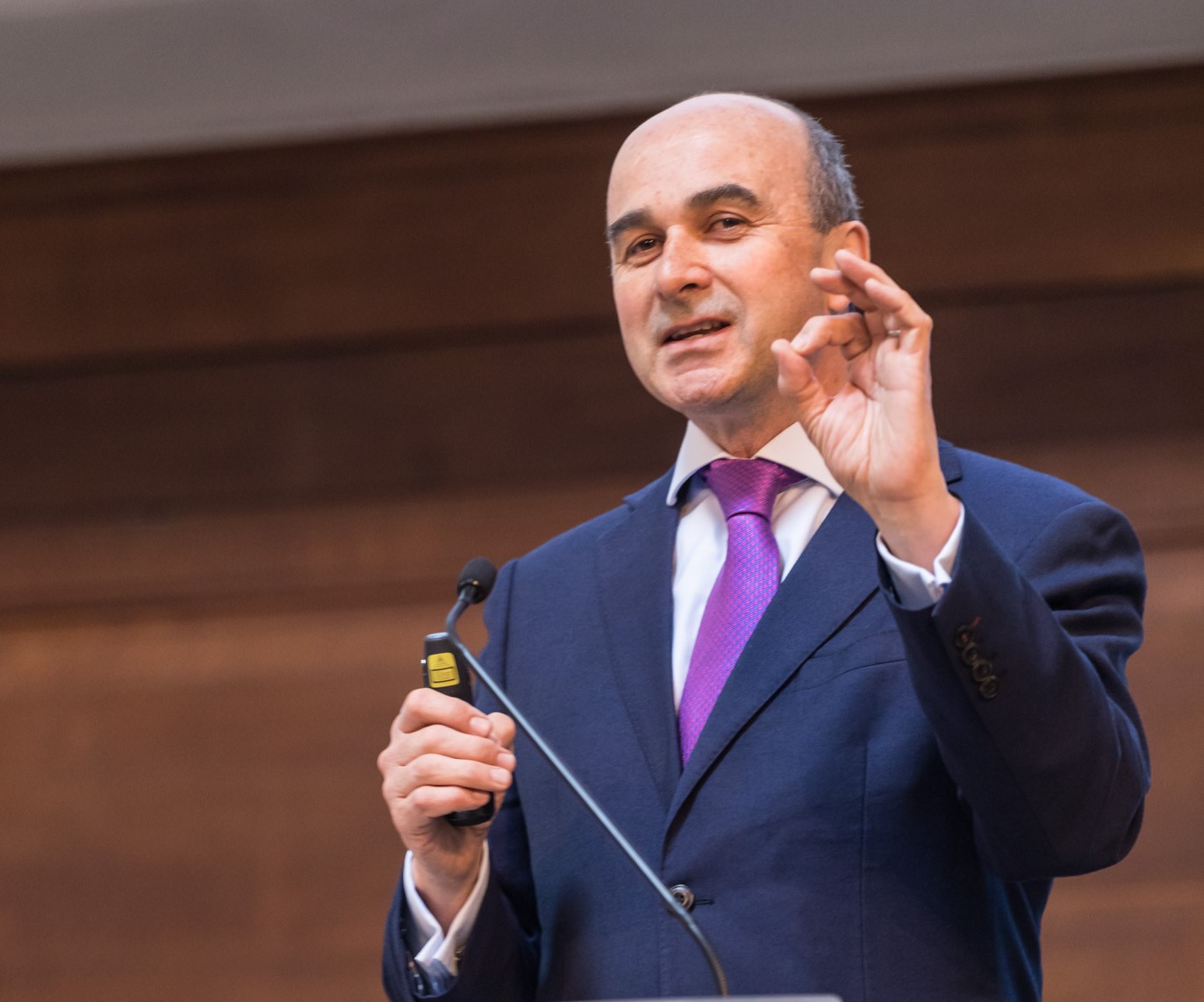
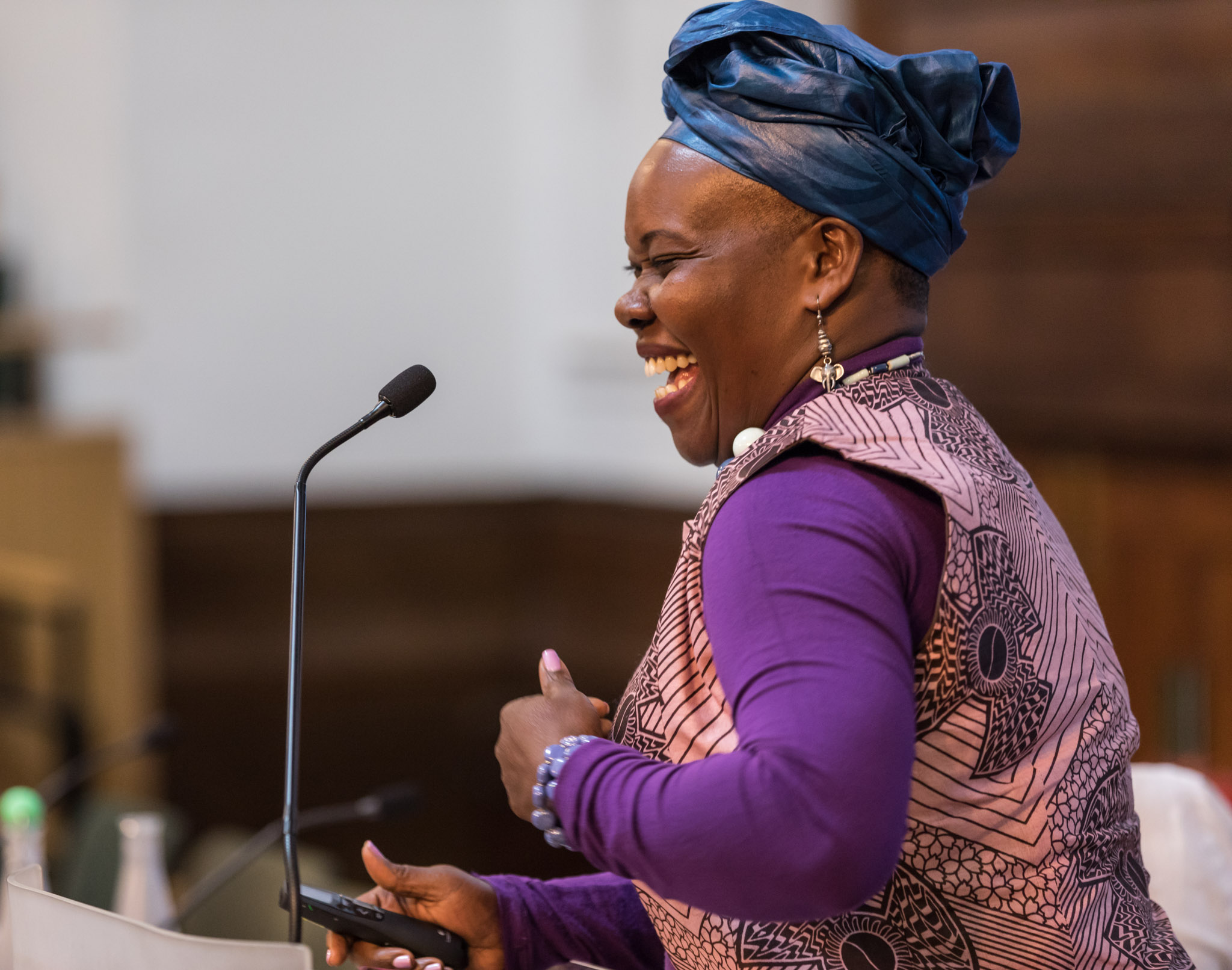
Dr Winnie Kiiru, Senior Technical Adviser at the Elephant Protection Initiative in Kenya, provided some grim statistics on the impact of the ivory trade on African elephant numbers. While the situation for elephants remains grave, she noted significant positive changes in the banning of ivory in many markets, and how other pressures on elephants, including high human population density in a number of their range countries, must now be addressed.
Our Director Robin Maynard rounded off the presentation session by providing a clear overview of the problem, opportunities, and key solutions: education, family planning, women’s empowerment, poverty alleviation and removing barriers to people exercising their reproductive rights. He highlighted the current review of the Convention on Biological Diversity and the need to include that kind of positive action to address population in its provisions.
Bella Lack’s moving speech
Our youngest conference speaker, 16-year-old environmental activist Bella Lack, was sadly unable to attend the event in person but we were thrilled to be able to share a recorded speech she sent us. An ambassador for the Born Free Foundation and Jane Goodall Institute, Bella gave an impassioned plea for our planet:
“For my generation, every moment of natural beauty is overshadowed by the grim truth. The grim truth of apathy, of empty commitments, of overconsumption and of decimation.” […] “Our leaders are striving for economic growth, for reputation growth, and for population growth, but they’re missing the point.”
Bella Lack
Bella Lack’s message to the Population Matters conference 2019
Bella’s speech was followed by a panel discussion, expertly chaired by Population Matters Patron Sara Parkin. It was great to see so much willingness to confront the facts about overpopulation and overconsumption and all of our speakers emphasised the need for holistic approaches and urgent action.
Robin concluded the conference by highlighting the progress being made in recognition of the importance of population to biodiversity and the need for future action. He thanked an enthusiastic audience for their engagement.
“Earth is our home. Our mission – indeed our survival – depends on altering our trajectory to live in harmony with the still extraordinary diversity of life it supports, as well as our own.”
Robin Maynard
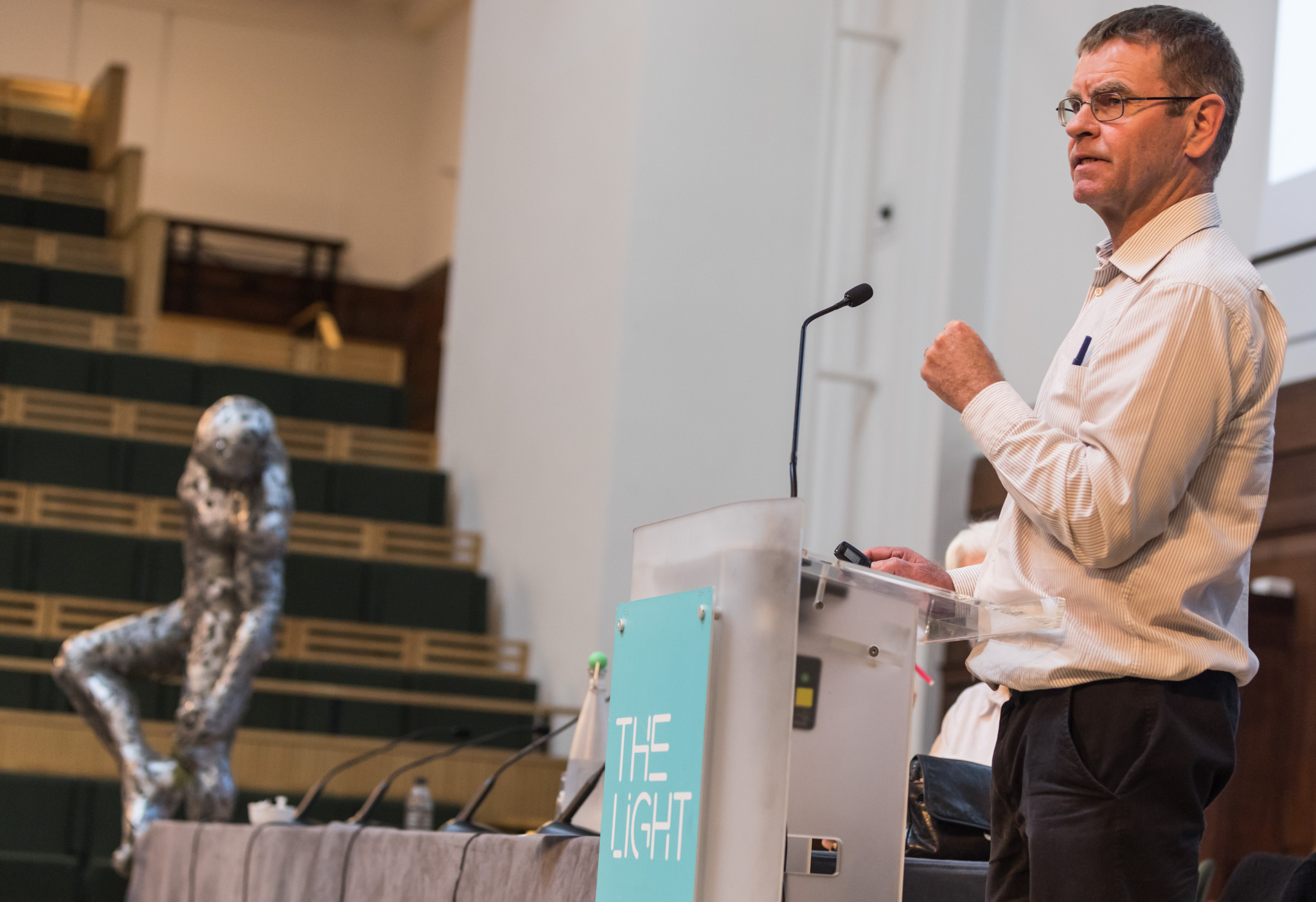
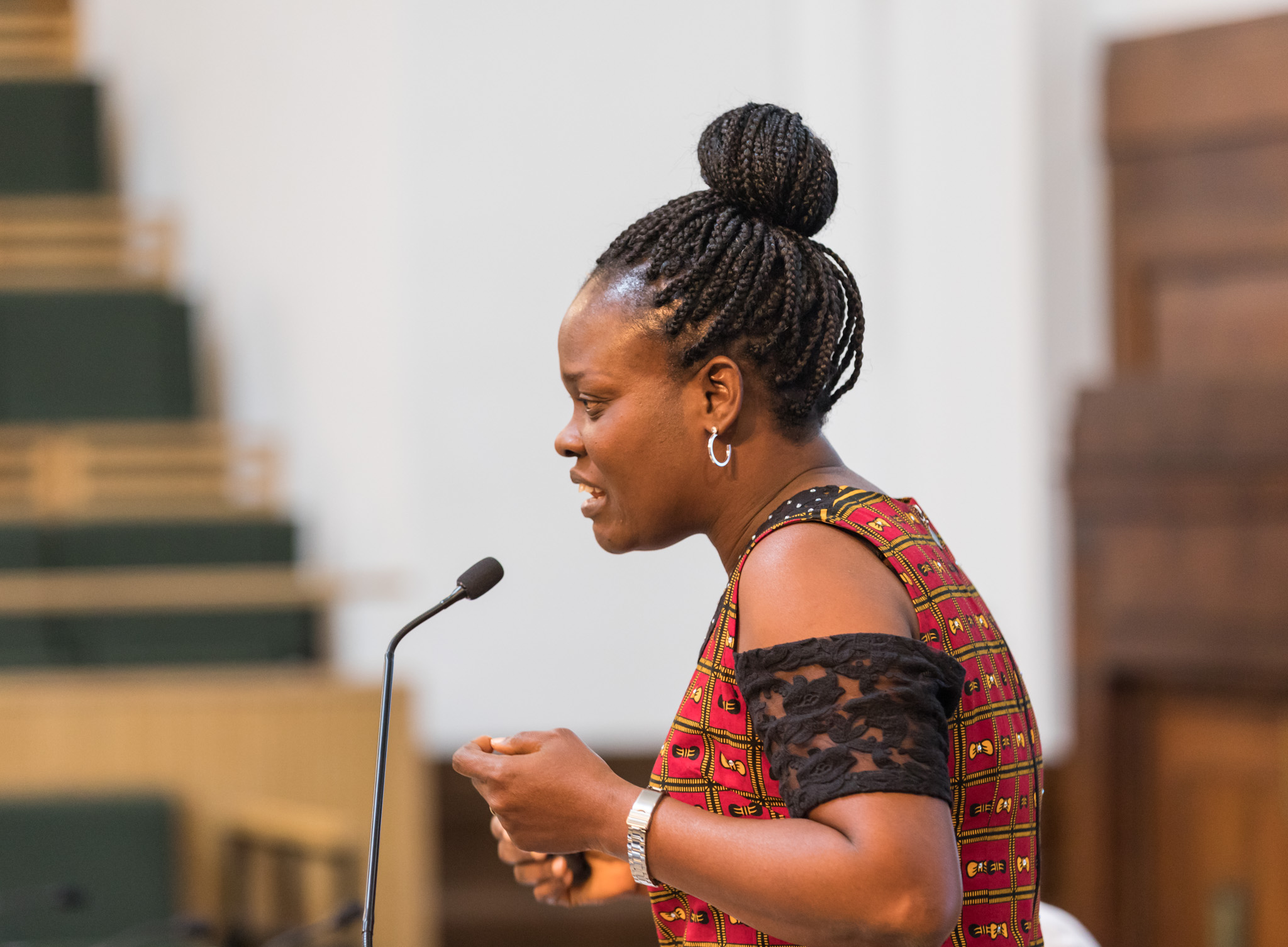
‘And everyone goes home happy’
Dr Effiom finished her presentation with a hopeful take-home message: solving population issues through globally beneficial means, in particular women’s empowerment and education, will save our planet’s precious biodiversity and improve human well-being. In Edu’s words: “And everyone goes home happy.” We hope this was also the case for our guests.
Thanks to all who attended. If you haven’t already, please consider joining us to help make our vision of a sustainable, happy future a reality.
Our thanks to the Catalysts Foundation for supporting the conference.
(All conference photos: @roxeneandersonphotography)

